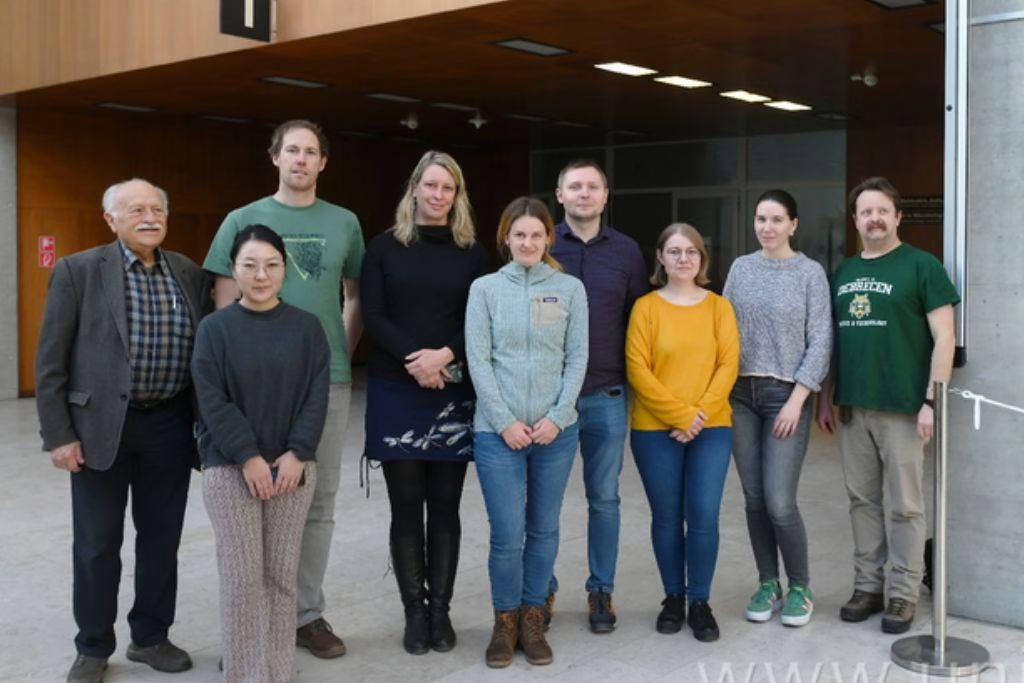
University of Debrecen: A Hub for Conservation Genetics Research
The University of Debrecen‘s Faculty of Science and Technology is actively engaged in cutting-edge conservation genetics research, exemplified by its collaborative project studying the genomes of protected moth species. This initiative, funded by the Visegrad Fund, involves researchers from Poland and the Czech Republic, highlighting the university’s commitment to international collaboration and knowledge sharing. The project focuses on understanding the genetic structure of endangered moths like the striped Jersey tiger moth and the eastern eggar, aiming to inform conservation management strategies and prevent further population decline. This research underscores the University of Debrecen’s dedication to applying genetic research to real-world conservation challenges.
Visiting Researchers Contribute to Conservation Genetics at the Faculty of Science and Technology
The University of Debrecen welcomed visiting researchers from the University of Białystok, the University of Wrocłav, and the Biology Centre of the Czech Academy of Sciences. These researchers, working alongside Ph.D. students at the university under the guidance of experts like Gábor Sramkó, are contributing significantly to the project. Their work includes preparing genome libraries for the targeted moth species, a crucial step in understanding the genetic diversity and structure of these populations. The collaborative nature of this project allows for the exchange of expertise and resources, fostering a rich learning environment for all participants and strengthening the University of Debrecen’s international research network. The visiting researchers are actively involved in laboratory work, data analysis, and knowledge exchange with their Hungarian counterparts.
Uncovering Genetic Insights for Conservation
The research conducted at the University of Debrecen aims to fill knowledge gaps in the genetic understanding of these endangered moth species. The data generated will be crucial for developing effective conservation strategies. By analyzing the genetic structure of these moths across their European distribution, researchers can identify populations with unique genetic characteristics that require specific conservation efforts. This genetic information can inform decisions regarding habitat management, breeding programs, and translocations, ultimately contributing to the long-term survival of these species. The project also benefits from the expertise of Professor Zoltán Varga, a world-renowned butterfly researcher and professor emeritus at the University of Debrecen, who provides valuable insights and guidance to the research team.
Long-Term Impact of Conservation Genetics Research
The University of Debrecen’s conservation genetics research has far-reaching implications for biodiversity conservation. By understanding the genetic makeup of endangered species, scientists can develop more effective strategies to protect them from the threats of habitat loss, climate change, and other environmental pressures. The findings from this project will not only contribute to the conservation of specific moth species but also provide valuable insights for broader conservation efforts across Europe. Furthermore, the project contributes to the training of future conservation geneticists, ensuring that the next generation of scientists is equipped to tackle the challenges facing biodiversity. The research also highlights the importance of international collaboration in addressing complex conservation issues.
Curious About Studying at the University of Debrecen?
Start your academic journey in Hungary with confidence. The University of Debrecen offers a diverse international community and strong academic programs. Studygram is here to help you every step of the way — from exploring your options to submitting your application. Fill out the form to get personalized support and take the first step toward your future.

